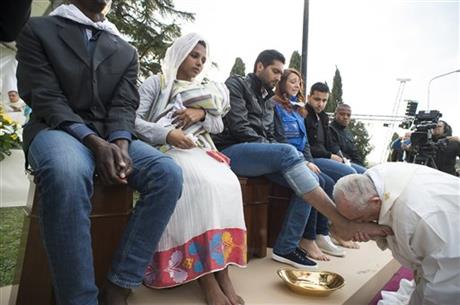The people who feel welcomed are the people for whom you have set a table of hospitality.
What does such a table of hospitality that welcomes others look like?
How do we set a table of hospitality that is welcoming to aboriginal people? People who are unhoused? Men and women who live with mental health challenges? People who identify as lgbtq+? Those who live with disabilities? Youth?
I think of two small things that happen at my church:
First, occasionally we substitute the Kenyan Rite for the usual Apostles' Creed. This not only helps us to think more about what we are saying, as the words are not the usual words, but the Kenyan Rite emphasizes different things from the Apostles' Creed. (see more commentary on this, including a great example from a Maasai prayer book).
Secondly, we have held a Standing Stones service in place of the usual Sunday morning Eucharist. The Standing Stones service is a gathering of Aboriginal and Non-aboriginal People to explore God in an Aboriginal Context (read more), and is very different from what we usually do, both in format and in content. I hope that we will be able to repeat this experience several times a year.
These are small ways in which to shift and expand the table of hospitality.














